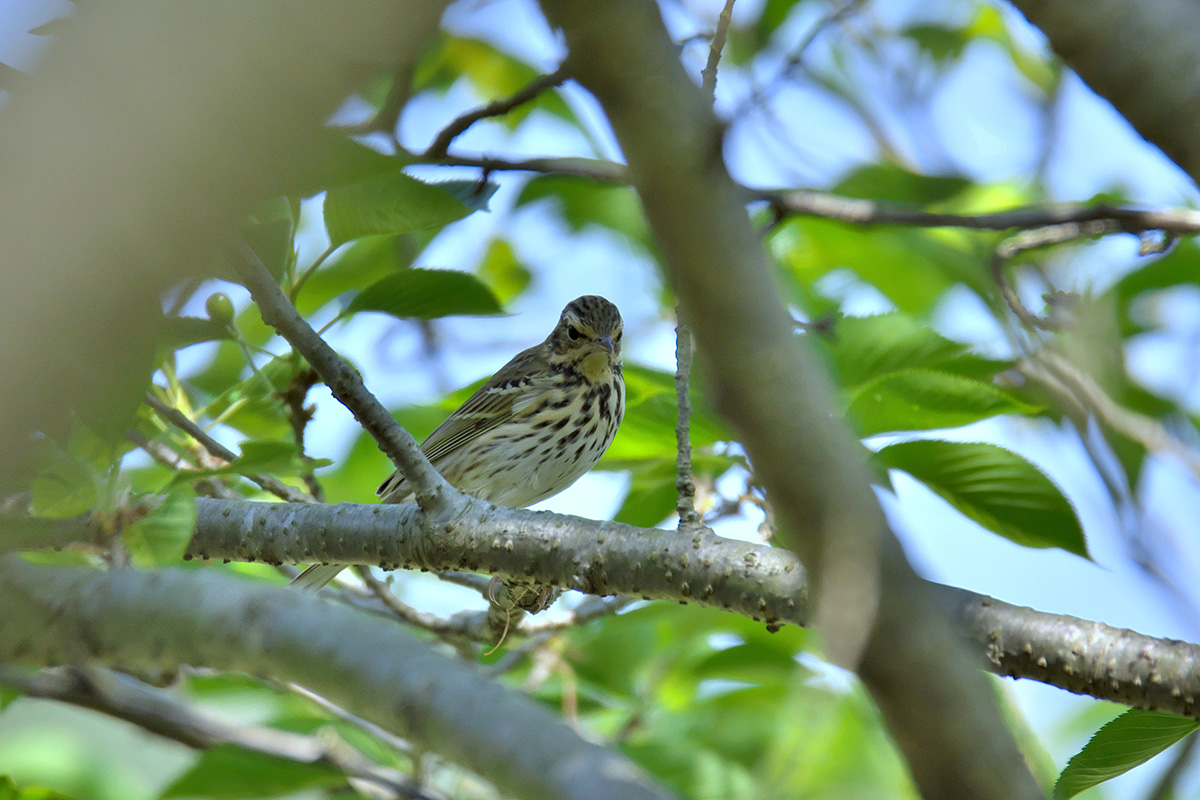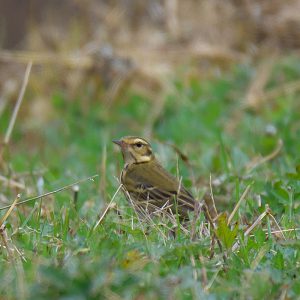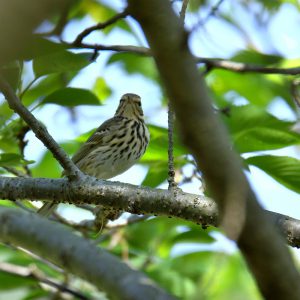むなかたが集まる
電子データベース
電子データベース
ビンズイ

| 種目 | ビンズイ (便追) | 分類 |
スズメ目 セキレイ科 タヒバリ属 |
学名 | Anthus hodgsoni | 英名 | Olive-backed Pipit |
|---|---|---|---|---|---|---|---|
|
ビンズイ (便追) |
スズメ目 セキレイ科 タヒバリ属 |
Anthus hodgsoni | Olive-backed Pipit |
宗像市でみられる場所・時期
宗像では冬鳥で,10月ころから4月ころまで,市内全域で観察できる。里山や谷筋の水田などで見かけることが多い。
特徴
全長14㎝から15㎝で,スズメよりやや小さい。雌雄同色である。
額から体上面は,緑褐色で,黒褐色の縦斑がある。淡褐色の眉斑の上端を縁取るように黒褐色が見える。耳羽に淡褐色の小さい斑があり,その脇には更に小さい黒斑がある。初列風切は三列風切より突出する。腮以下の体下面は淡褐色で,黒褐色の縦斑がある。嘴は黒褐色で,下嘴は淡褐色,脚は肉色,爪は淡褐色である。
習性
平地から高山帯の草地や明るい林,針葉樹林帯,針・広葉樹混交林,落葉広葉樹林など開けた環境に生息する。繁殖期以外は小群で生活し,主に松林や広葉樹林の地上を尾羽を上下に振りながら歩き,昆虫やクモ類などを食べる。
分布
漂鳥または夏鳥として北海道から四国の平野から高山帯に生息する。北方に生息する個体群は,冬に暖地に移動する。従って西日本では冬鳥となることが多い。宗像もそうである。
世界的に見ると,シベリア,中国,日本列島などで繁殖し,インドシナ半島,フィリピン,ガンジス川流域で越冬する。
 はじめに
はじめに お問い合わせ
お問い合わせ
